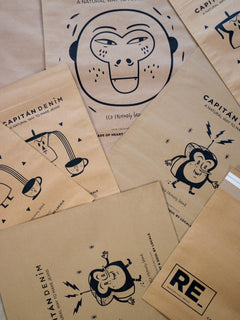Differences between organic and conventional cotton
Conventional cotton is a natural fiber that is present in much of the textile we consume, however, its cultivation is the one that consumes the most pesticides and insecticides in the world, specifically 10% and 25% of the total, respectively. Consumers, increasingly aware of the environment around them, find an alternative to this fabric in organic, ethical and environmentally responsible cotton .
As we know, organic cotton comes from organic farming and for it to be considered as such, it must be certified by independent bodies in accordance with applicable regulations. An example would be the 'Made in Green' seal or the GOTS –Global Organic Textile Standard-, which guarantee that fabrics are socially responsible, among other aspects.
Thus, organic farming avoids using chemical fertilizers, synthetic pesticides, herbicides and genetically modified seeds for cultivation, replacing artificial fertilizers with natural practices, such as animal manure, among others. In addition, the organic cotton harvest is manual, since when doing it with a machine, the plantation is sprayed with chemical products to speed up its harvest.
On the other hand, it is also important that when transforming the fiber into yarn, chemicals that are harmful to both our health and the environment are not used.
For a product to be considered organic, it must contain at least 70% organic fibers certified as such and also meet strict production, environmental, social and technical requirements, ensuring compliance throughout the entire production chain. , manufacturing and marketing of the product.
All in all, we can say that by consuming organic cotton you avoid exposing your skin to harmful substances and thus reduce the possible appearance of allergic reactions. This type of fabric is softer, lighter and more pleasant, allowing the skin to breathe. In addition, you contribute to minimizing the impact on the environment and improving the quality of life of cotton crop workers.




